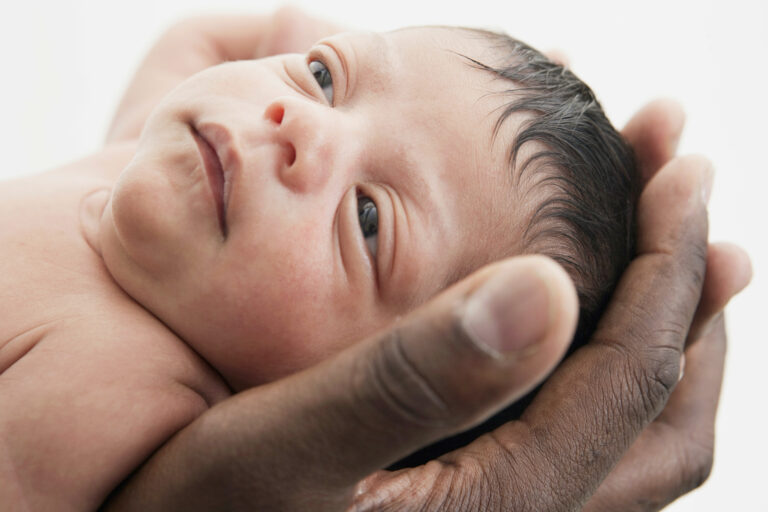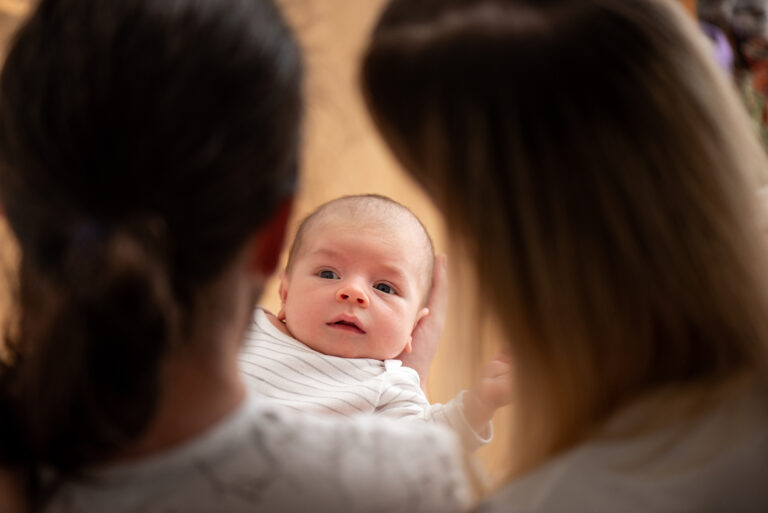Rooted in Shared Mission

Catholic, not-for-profit health ministries are guided by the Gospel call to be a compassionate and transforming healing presence in the communities it serves.
Birth Tissue International (BTI) exists to extend that very mission — offering mothers the opportunity to transform the miracle of birth into a legacy of healing.
In a world yearning for healing and ethical medical advancement, birth tissue donation offers a unique and powerful opportunity to honor God, uphold human dignity and extend Christ’s healing presence — beginning in the sacred moment of birth.
Let’s extend the miracle — together.

BTI & Catholic Values
Affirming Catholic Teaching on Donation
The Catholic Church views organ and tissue donation as a generous act of love and solidarity when done with free, informed consent.
This View Perfectly Aligns with BTI’s Mission
- Donation occurs post-delivery of a healthy, full-term baby.
- It is non-invasive, painless and ethically sound.
- No compensation is given or received—ensuring moral integrity and compliance with the National Organ Transplant Act.
A Ministry of Healing That Begins at Birth
BTI’s ethos — “Extending the Miracle”— echoes your commitment to life-affirming care. Birth tissue, once discarded as medical waste, now provides healing and life-saving treatment in:
- Burn treatment
- Chronic wound care
- Reconstructive surgery
- Gynecological, colorectal and vascular procedures
- Ocular diseases and disorders
- Advanced research for future medical breakthroughs (e.g., bloodborne cancer therapies)
This work upholds the sacredness of life and meets Catholic healthcare ministries missions to bring healing and hope to the most vulnerable.
How BTI Ensures Ethical, Faith-Respectful Partnership
- BTI works only with FDA-registered and AATB-accredited organizations.
- Strict HIPAA and FDA compliance ensures donor privacy and regulatory transparency.
- No DNA is accessed, and personal identifiers are never disclosed.
- All donations are anonymized, traceable and fully voluntary.
A Legacy of Love from Mother and Baby
In the Catholic faith, we recognize that every human life is a gift from God. BTI allows that gift to be shared.
- A mother’s “yes” to donation becomes a living witness to her faith.
- Her child’s birth begins a legacy of healing — a testimony of God’s love.
Expanding Your Ministry’s Mission Through Action
- Supporting BTI expands your community benefits and charitable care — with your support, you offer new healing possibilities for patients across the country and reinforces your position as a leader not only in healthcare innovation, but also faith.

Tracing a Donation
Traceability is a cornerstone of ethical and compliant birth tissue donation, ensuring that every graft or tissue-derived product can be traced back through every stage of its lifecycle — from recovery to final application.
Under American Association of Tissue Banks (AATB) standards, recovery organizations and processors are required to maintain a complete and accurate chain of custody, beginning with the donor and extending through processing, labeling, storage and distribution.
Each donation is assigned a unique identification number, allowing for full traceability back to the specific donor.
While this level of traceability is essential for safety monitoring, quality assurance, and regulatory compliance, processors must also strictly adhere to HIPAA regulations and patient privacy laws.
This means that although the donation can be linked internally to the exact donor for safety and auditing purposes, any personally identifiable health information is kept confidential and protected.
Records are securely maintained for a minimum of 10 years, and protocols are in place to ensure rapid access in the event of a recall, audit or adverse event report — all while upholding the gift of donation, as well as the dignity and privacy of the donor and their family.
When a Donation Can’t Be Used and Must Be Discarded
In accordance with AATB standards, birth tissue donations that do not meet established eligibility, quality or safety criteria must be safely and respectfully discarded.
This process is governed by strict protocols to ensure regulatory compliance and ethical handling.
If, during medical review, serological testing or physical inspection, a tissue is found to be unsuitable for transplant or research due to contamination, incomplete documentation, test results or compromised integrity, the tissue must be quarantined and clearly labeled as ineligible.
BTI and processors must follow documented procedures for the final disposition of such tissue, which may include incineration or other approved biohazard disposal methods, in accordance with state, federal and environmental regulations.
All discarded donations must be fully traceable, with documentation retained for a minimum of 10 years, including the reason for discard and the method of disposal.
At every stage, both BTI and processors are expected to uphold the dignity of the donation, honoring the intent of the donor family even when the tissue cannot be used.
BTI | Our Why
BTI is on a mission to provide healing and life-saving treatments to those in need by providing the opportunity of birth tissue donation to as many people as possible nationwide while maintaining our excellent reputation as a leader in birth tissue recovery programs.
With your support, you help us with our mission to ensure these amazing medical technologies and innovations continue through the gift of donation.
What BTI IS NOT
BTI is NOT a tissue bank, nor do we process tissue. We are a birth tissue donation recovery organization.
We partner with American Association of Tissue Banks (AATB)-accredited and FDA-licensed organizations that take the tissue we recover and transform it into medical innovations and treatments or use it for research for future medical innovations.
For example, right now we are working with an organization who is currently studying how cord blood can treat bloodborne cancers. We also work with organizations who are already FDA-cleared and approved for their specific medical treatments that are available in the market today and used by hospitals throughout the United States.
What is Birth Tissue?
Birth tissue is gestational tissue that can be donated by fully consented donors after the delivery of a healthy, full-term living newborn – it is NOT fetal tissue. Birth tissue is mother nature’s biologic miracle that helps nourish and develop the baby in utero.
Historically, this birth tissue – commonly referred to as afterbirth – is discarded as medical waste.
Birth tissue donation is what is called a “living tissue donation.” Unlike most living tissue donations, however, birth tissue donation is painless, does not impact the health of you or your baby, and doesn’t require an invasive procedure – for example like bone marrow or kidney donation.
In fact, the American Association of Tissue Banks (AATB) states the increasing demand for birth tissue continues to be the largest driver for the overall growth in living tissue donors.
How Birth Tissue Donation Can Help
Birth tissue can be used for a multitude of medical treatments, including treating painful, non-healing wounds, burns, reconstructive procedures, and surgery for colorectal, gynecological, urology and vascular procedures.
Birth tissue is also used for research and educational purposes and has been a key component in advancing medical research – developing new and innovative treatments for various medical conditions.
Types of Donated Birth Tissue BTI Collects
- Amniotic Membrane
- Chorionic Membrane
- Umbilical Cord Tissue
- Umbilical Cord Blood
- Amniotic Fluid

Donor Frequently Asked Questions
Is the donation from me or my baby?
Both. Your placenta has two layers: amnion and chorion. The amnion belongs to your baby and the chorion belongs to you. When you donate, your birth tissue is transformed into amazing medical treatments.
Sometimes, the birth tissue contains both the amnion and chorion, and sometimes, the birth tissue is separated, consisting only of amnion. With the umbilical cord and cord blood, during prenatal development, they are physiologically and genetically part of the baby and contains two arteries and one vein.
What do you do with my medical information?
BTI is strictly regulated under FDA rules and follow all Health Insurance Portability and Accountability Act (HIPPA) regulations. HIPPA is a federal law requiring national standards to protect sensitive patient information from being disclosed without your consent or knowledge.
Per FDA regulations, BTI is required to obtain medical records and share this information with organizations who accept birth tissue donations, but patient information remains strictly anonymous using a unique donor identification number; and only used to ensure the donation is eligible for use.
Do you sell my medical information?
BTI is strictly prohibited from sharing or selling your medical information.
Do you have access to me and my baby’s DNA, and if so, what do you do with this information?
While blood testing is required to donate, BTI DOES NOT have access to you or your baby’s DNA. This is strictly prohibited. Organizations are only interested in you and your baby’s gift of donation, once made into medical treatments, can heal and even potentially save lives.
Is birth tissue donation regulated?
Birth tissue recovery organizations are strictly regulated by the FDA, as well as all transplant tissue banks. Tissue banks are routinely inspected for compliance to federal regulations and must also be accredited by the American Association of Tissue Banks (AATB) to legally operate and manufacture tissue (deceased and living donations).
Do you get paid for birth tissue donation (placenta and other birth tissue)?
Both for-profit and not-for-profit organizations operate to make up a network of tissue banks that recover and distribute tissue. BTI does not get paid for the donation; however, they are paid to perform the services necessary to ensure the safety of transplant recipients, donors, physicians and hospitals. This can include costs for supplies, labor, and donor and birth tissue testing to ensure eligibility.
Does the donor get paid for birth tissue donation?
With your donation, you’re extending your miracle through the gift of donation. In fact, a gift and/or payment for donated tissue and organs is illegal under the National Organ Transplant Act of 1984.
Who gets the birth tissue donation?
BTI works with extremely reputable, FDA-licensed and AATB-accredited organizations throughout the United States that take the recovered birth tissue and transform these donations into medical treatments and innovations that are used on patients to treat painful, hard to heal wounds, burn victims, and reconstructive and surgical procedures, or for research purposes that contribute greatly to the development of future medical treatments.
Can I find out who received the birth tissue donation?
Due to HIPPA regulations, patient medical information is confidential, and sharing this information is strictly prohibited between donor and recipient. However, all human tissues, including birth tissue, must be tracked from donor to recipient.
This is in case of an unlikely adverse reaction caused by a tissue graft, like an infection or transmissible disease. Tissue tracking does not use any patient identifiers, like name or social security number. Instead, a unique donor identification number is assigned.
In the event an adverse reaction occurs, the donor is notified, but donor information will remain anonymous to the patient.
